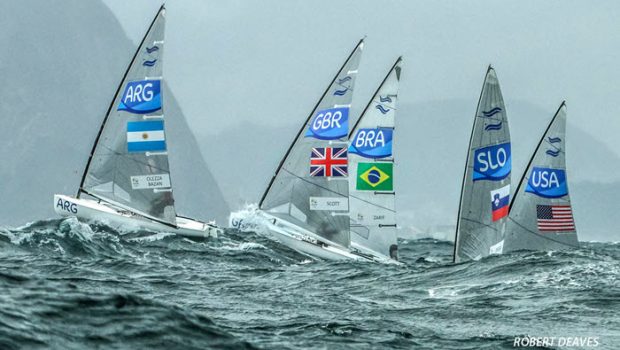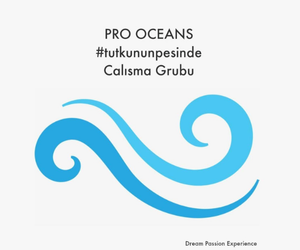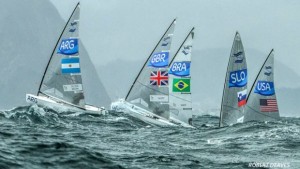by Craig Leweck, Scuttlebutt
Anyone who tells you the selection of the Olympic sailing program should be simple is both right and wrong.
Take a blank sheet of paper, they say, and decide and deliver what best reflects the elite racing in the sport. That’s what every sport has done, and from that base has been created Olympic records and legends.
But unlike every sport, Sailing keeps evolving. The history of sailing in the Olympics has seen 49 boats, eight of which will be used at Tokyo 2020. Reasons to change the program have been varied, and arguably suspect at times, but the history of change exists regardless.
In my lifetime, I have never witnessed a Class organization welcome their elimination, so when news came in November 2018 that the program would be changed again for Paris 2024, and for the Finn Class, end the longest streak which began in 1952, the Class was predictably gobsmacked.
What was unique about this shift was how it sought to meet the directives provided by the Olympic Agenda 2020 that the International Olympic Committee had published in 2014. Gender equality, equipment universality, and showcasing the sport… these were subjects and adjectives that needed to be met.
As International Olympic Committee President Thomas Bach stated at the 134th IOC Session in June 2019, “When we adopted the Olympic Agenda 2020 reforms, the theme was: To change, or to be changed. This still holds true today.”
So when change came, new events were selected which meant, with a limit of 10 competitions, some events would be changed or eliminated. When Mixed Kite and Mixed Two Person Keelboat Offshore were chosen, it reduced the Two Person Dinghy events for men and women to one mixed event, and it removed the One Person Dinghy Heavy event for which the Finn had been used.
As I said, no class welcomes such a decision, and the Finn class has embraced it less than others combined. Perhaps it is in the DNA of its sailors, or the abundant communication tools of the internet, but their drums keep pounding. With the Paris 2024 event program to be confirmed at the World Sailing Annual Conference in November 2019, below is their proposal to get back into the Olympics:
Following an extended period of reflection and careful deliberation, the Finn class is announcing details of its plans to try to ‘rebalance the slate’.
Within the Slate of Olympic Sailing events voted for in Sarasota in 2018 there is an imbalance in sailor’s physiques, a key policy of the World Sailing Council from its November 2017 meetings and a key IOC recommendation. The Finn class is trying to redress this imbalance by working on several Submissions for the November Conference in Bermuda this year that will rebalance the Olympic Slate, providing events suitable for both Heavyweight Men and Lightweight Women.
The class recognizes that World Sailing had some difficult decisions to make surrounding the Olympic Events for 2024 when it met in Sarasota last year. Innovating and moving the Olympic Events forward with the introduction of Kiteboards and the Mixed Offshore Keelboat left the Finn outside the Olympic family.
Many people, both inside and outside of World Sailing are unhappy that the introduction of these new events has resulted in the loss of the Finn, Olympic Sailing’s Blue Riband event, its Marathon, the boat that has delivered a succession of heroic Olympians and sailing legends over 17 successive Summer Games; Elvstrøm, Ainslie, Coutts, Lööf, Bertrand, Lemieux… the list goes on.
With the elimination of the Finn, men over 85kg (187 pounds) no longer have a chance to compete at the Olympics within Sailing. The confused process leading up to the Sarasota voting, however, was a rush to judgement that also limits the opportunities for lightweight women*.
In order to support the IOC and World Sailing’s stated goal to promote inclusion, the International Finn Association is working on a series of submissions for November 2019 to rebalance the Olympic Events, providing options for both Heavyweight Men and Lightweight Women.
The Sarasota Conference was not an easy one for World Sailing, but we have the opportunity in Bermuda this November to rethink and fine-tune decisions made last year under very difficult conditions.
The submissions from the IFA will not mean removing the innovative new events that World Sailing is working so hard to introduce. They would, however, mean that Kiteboarding becomes a Men’s event matched by a female Windsurfing event. The Mixed Two Person Dinghy becomes a Women’s event matched by the reintroduction of the One Person Dinghy (Heavyweight Men).
It will be a balanced slate that allows for the widest possible spread of participation across genders, weights, and nations within the constraints laid down by the IOC.
The IFA is looking forward to continuing to work closely with all of the people that have expressed so much support for the fantastic athletes that exist within the class. These are competitors who will form the backbone of sailing for generations to come.
The Finn class is building a strong base of support for the changes that are being proposed, and these proposals will be published in full at a later date.
I presume the conclusion of how the current slate for Paris 2024 limits the opportunities for lightweight women is based on an opinion that the Mixed Two Person Dinghy, for which the 470 is to be used, will have women fill the larger crew role and men be the smaller skipper. This was a question I had asked 2012 Olympic 470 medalist Luke Patience.
What could derail the Finn Class proposal are the findings of a 37-page report published in May 2018 which detailed the priorities for selecting the Olympic program. In this report it stated how for those events not mixed, that there should be matching events for men and women with same or similar format and equipment.
Source: sailingscuttlebutt






